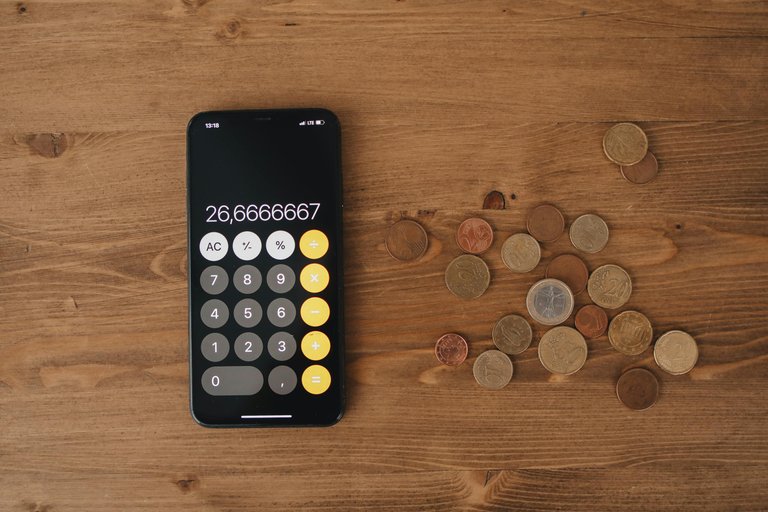Numbers On A Screen
It isn't always clear to me that an abundance mindset can be practical in a world that seems objectively scarce.
I totally get the part where artificial scarcity is created by way of programming, money made is tied to the amount of time you can put in and the value created during that time period.
Time is one of those (what is time again?) that could be seen as both abundant and scarce, depending on context and perspective.
I have a limited amount of time to do the things I want to do at this point in my life, yet the potential to use time creatively feels boundless when viewed through an abundance lens.
Money kind of also falls into the same category, in that there's a psychological difference between viewing money as an abundant versus as a scarce resource.
Both can be true and I'm not sure in actual reality which is more true, probably the former if money is strictly tied to tangible resources like gold.
But in practice, money tends to feel scarce because of how we’ve structured our systems and mindsets.
Mental Engineering
In our current digital age, I think most of us will fare better if we adopt the mindset that money is an abundant resource even when that doesn't reflect in our practical objective reality.
I sometimes spend more time than necessary pondering on this saying about money as just numbers on a screen.
What I really ponder upon is how the number increases and decreases, specifically the process that brings about both to occur.
Sometimes, it starts with recalling your first online paycheck or transferring funds into a new wallet. From a 0 balance to 456, you transfer out 156 to another destination, say off-ramping it into fiat and then withdrawing it into cash.
With the cash in hand, you realize this is real, but only because we collectively agree it has value.
The paper itself holds no inherent worth other than being a representation of the shared belief system that transforms these numbers and symbols into purchasing power.
For me, the whole process can be reminiscent of waking up from a dream and realizing later that the dream has become reality.
Not that I fully subscribe to the idea that the digital age we live in is a dream, but its lack of tangibility influences me to view it that way from a broader perspective that considers the malleable nature of digital wealth and the speed at which financial realities can shift.
Chasing Exponentials
This dream-like quality of digital money actually supports why an abundance mindset serves us better. When wealth exists primarily as data points, the traditional scarcity constraints of physical resources become less relevant.
Physical scarcity demanded hoarding and competition by nature of limited supply.
Now, we’re told by virtue of digital abundance that the rules have changed, favoring sharing, networking, and collaboration. The most valuable digital assets, i.e platforms, communities, intellectual property, etc. often grow in value when distributed rather than hoarded.
The catch is that the digital world allows this to happen at a much larger scale than the physical world.
Ideas/information that ends up creating wealth can spread instantly, bringing about opportunities that were unimaginable in a purely physical economy.
Maybe that's where the realization of recognizing that digital systems amplify abundance in ways the physical world never could hits in a profound way.
For now, I think it’s a good strategic adaptation to put on an abundance mindset hat, knowing that while scarcity still exists on a fundamental objective basis, the digital age rewards those who embrace possibility and exponential potential of shared value.
Thanks for reading!! Share your thoughts below on the comments.
